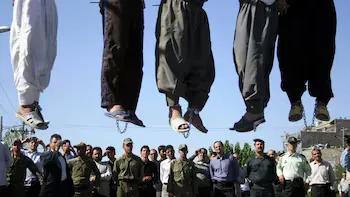Beyond the Numbers: A Justice Without Voice or Defense
In early July 2025, a new report from Amnesty International once again raised alarms about the human rights situation in the Middle East. This time, the focus shifted to a state that, while showcasing futuristic mega-projects, silently multiplies executions. The statistics are telling: in 2024 alone, 345 people were executed. In the first six months of 2025, 180 executions have already been recorded, 37 of which took place in a single month, almost all linked to drug offenses.
The resumption of executions for drug trafficking, after an informal moratorium that discreetly ended in 2022, has returned the country to the top ranks in global death penalty usage. However, the most disturbing fact goes beyond the numbers: around 75% of the people executed for these offenses are foreigners. Low-income migrant workers from countries like Pakistan, Nigeria, Somalia, and Jordan face proceedings without translators, without adequate defense, and in many cases without prior notice to their families. Some relatives have been informed only after their loved ones had already been executed.
A Justice That Does Not Reach Everyone Equally
While the official discourse speaks of modernization, reform, and development, the judicial system shows another face: a penal structure that applies its strictness particularly harshly to those with fewer means to defend themselves. The Amnesty report describes documented cases of torture, confessions extracted under duress, and a total absence of minimal guarantees of due process. Added to this is alarming data: at least seven people have been sentenced to death for crimes committed while they were minors, openly violating international law.
Nationality and socioeconomic status have become factors of vulnerability in the face of a highly opaque penal system. In the name of security or public morality, irreversible sentences are imposed with no real space for review, appeal, or dignified defense. Justice is executed, but rarely explained. And in many cases, it is not even communicated to those who need it most: the families.
The Shadow Behind the Reformist Mirror
The “Vision 2030” program aims to project an image of openness, innovation, and regional leadership. However, the findings of the report sharply contrast with that narrative. The systematic application of the death penalty for non-violent offenses, the lack of transparency in judicial proceedings, and structural discrimination against minorities such as Shiites, who make up only 10–12% of the population but account for over 40% of the executions for “terrorism,” expose a selective judicial policy, strict with some and lenient with others.
The figures once again illustrate a disturbing trend. From 2014 to mid-2025, 1,816 people have been executed in the country. Of those, 597 were for drug-related offenses. Far from being an exceptional measure, the death penalty seems to be part of a system that operates regularly, without consideration, and that reserves its greatest harshness for those without influence or diplomatic protection.
Voices That Go Unheard and Responsibilities That Evaporate
Despite multiple protests from governments whose citizens have been executed, including Jordan, Pakistan, and Nigeria, the response has been limited. The real capacity for diplomatic pressure appears to dissolve in the face of energy interests, multimillion-dollar investments, and strategic alliances. In international forums, such as the UN Human Rights Council, expressions of concern have been constant, but little effective in curtailing a policy that continues without major consequences.
Amnesty International, Human Rights Watch, and Reprieve have reiterated the need to establish a total moratorium on the death penalty, especially for non-violent offenses such as drug trafficking. The demand includes independent review of all pending cases, aiming to prevent new executions that could constitute serious violations of international law.

Comments